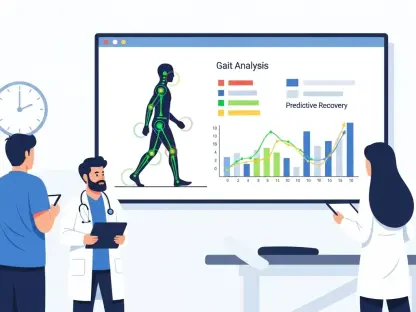The biotechnology market has been on a notable growth trajectory, showing substantial expansion as it forges new paths to transform medicine, agriculture, and industrial processes. Predictions indicate that it is set to grow at a compound annual growth rate of between 13% and 15% through 2027. Several factors are contributing to this optimistic outlook, including breakthroughs in genetic engineering and genomics, mounting demand for biopharmaceuticals, rising incidences of chronic diseases, and an uptick in research and development investments. These elements are pivotal in advancing the field of biotechnology, which applies foundational principles of genetics, molecular biology, and biochemistry to improve human health, bolster agricultural productivity, ensure environmental sustainability, and enhance industrial efficiency. As innovations such as gene editing and synthetic biology find expanding applications, they address vital challenges in medical practices and resource management. The precision offered by genetic engineering advancements is leading to significant strides in personalized medicine and biopharmaceuticals.
Genetic Engineering and Genomics
Genetic engineering and genomics are at the forefront of the biotechnology revolution, substantially influencing its trajectory. Techniques such as CRISPR-Cas9 and next-generation sequencing have revolutionized the precision of genetic modifications, facilitating unprecedented developments in personalized medicine. These technologies enable the transformation of how diseases are understood, diagnosed, and treated. With their ability to make precise genetic alterations, there is a significant potential to correct genetic disorders and tailor treatments specific to individuals, thereby improving the efficacy of therapeutic interventions. Additionally, advances in genomics have expanded the understanding of the human genome, driving innovation in predictive medicine and health management. This trend is spurring the development of targeted therapies that are more effective and have fewer side effects.
The genomic insights gained from these technologies are also playing a critical role in expanding the scope of biopharmaceuticals. By better understanding the genetic underpinnings of diseases, biotech companies can develop biologic drugs that are much more targeted. These biologic therapies, such as monoclonal antibodies and vaccines, are setting new benchmarks for success in treating complex chronic diseases. With fewer side effects compared to traditional therapies, biopharmaceuticals are rapidly becoming the treatment of choice for conditions like cancer and autoimmune disorders, thereby significantly boosting market demand. This burgeoning interest is notably reflected in the increased R&D investments by pharmaceutical companies eager to capitalize on the growing need for innovative medicines.
Demand for Biopharmaceuticals
The surging demand for biopharmaceuticals is an essential driver of current biotechnology market expansion. These targeted therapies, including monoclonal antibodies and advanced vaccines, offer more precisely specialized treatment options with fewer side effects. Their effectiveness in managing complex chronic diseases such as cancer and autoimmune disorders is catalyzing increased global demand. Consequently, biopharmaceutical companies are investing heavily in research and development to innovate and develop new products that meet market needs. This pattern of investment and innovation has become crucial as biotech firms strive to maintain relevance in an increasingly competitive market landscape.
Moreover, the biotechnology landscape is defined by significant activity among leading companies like F. Hoffmann-La Roche, Gilead Sciences, and Pfizer Inc. These giants of the industry are not only spearheading new product development but also engaging in strategic partnerships and exploring new geographic markets to strengthen their positions. Such initiatives underscore their commitment to staying competitive while also contributing to broader industry growth. Their efforts are complemented by the continuous inflow of insights and data from research-driven firms specializing in biotechnology, enabling both established corporations and emerging startups to effectively navigate and optimize market opportunities.
Future Trends in Biotechnology
The biotechnology industry is experiencing remarkable growth, significantly impacting medicine, agriculture, and industrial methods. Forecasts suggest it will expand at a compound annual growth rate of 13% to 15% until 2027. This promising trend is fueled by several factors, including advancements in genetic engineering and genomics, increasing demand for biopharmaceuticals, the rising prevalence of chronic diseases, and heightened research and development investments. These aspects are crucial for advancing biotechnology, which leverages genetics, molecular biology, and biochemistry fundamentals to enhance human health, boost agricultural output, promote environmental sustainability, and improve industrial processes. With innovations like gene editing and synthetic biology now finding broader applications, they tackle significant challenges in medical treatment and resource management. The precision offered by improvements in genetic engineering is leading to notable progress in personalized medicine and the development of biopharmaceuticals.









